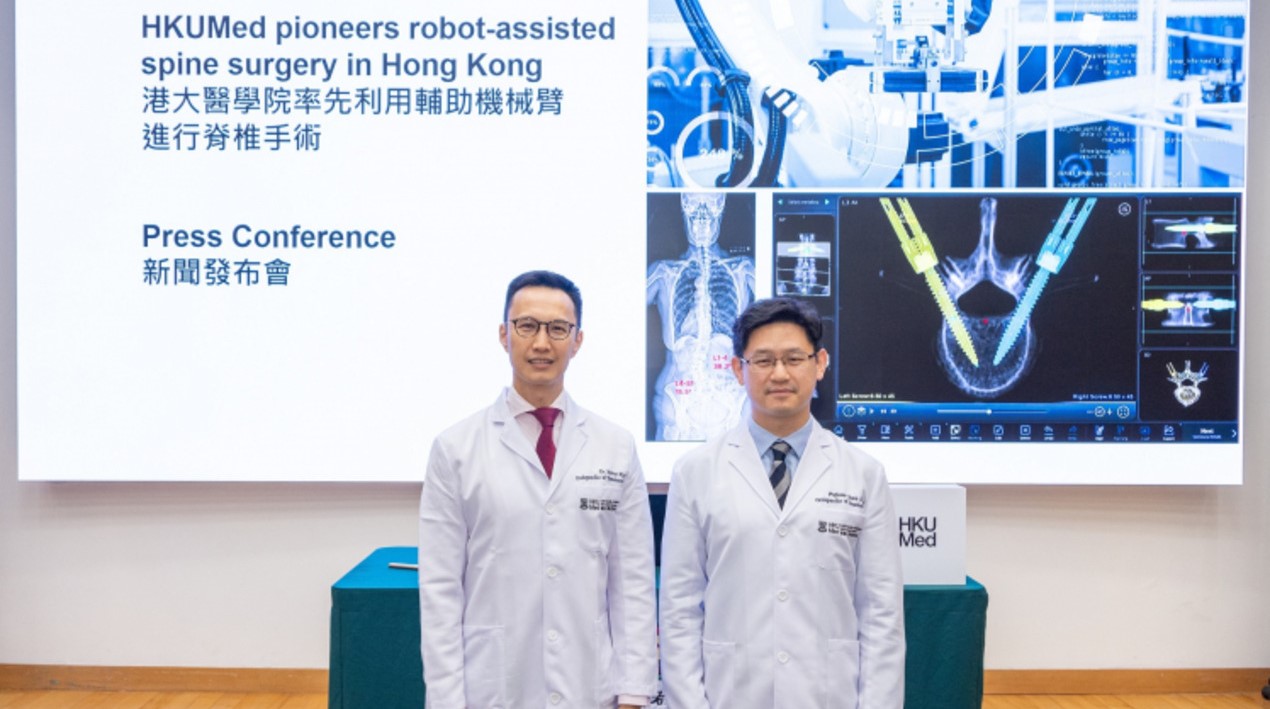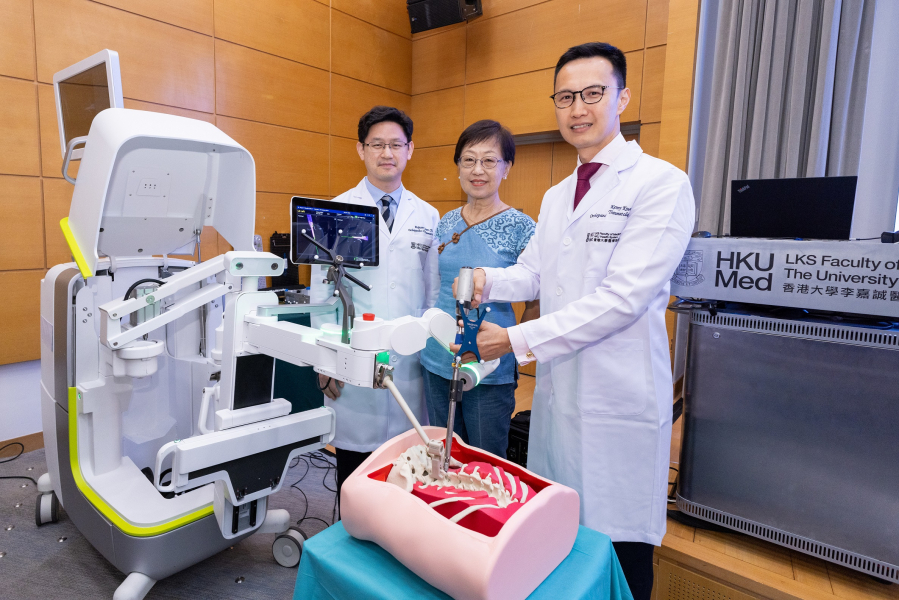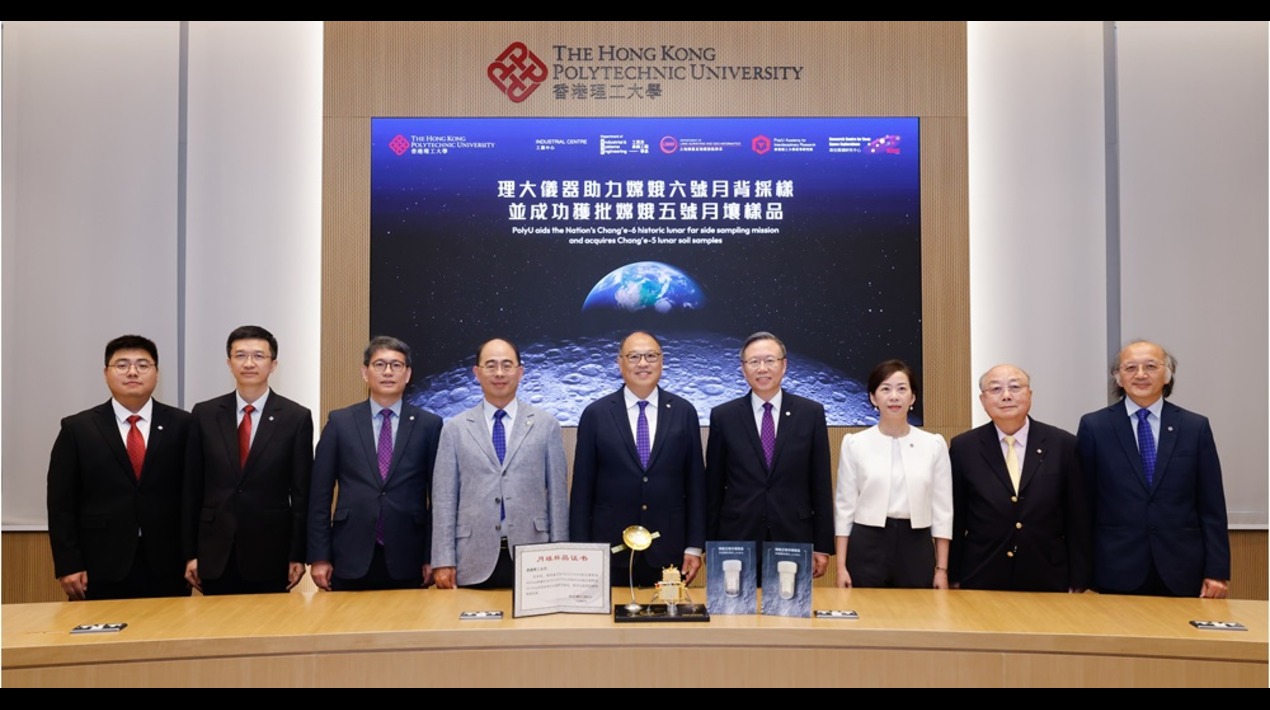
The Department of Orthopaedics and Traumatology at the School of Clinical Medicine, LKS Faculty of Medicine, University of Hong Kong (HKUMed) has introduced robot-assisted technology in spine surgery for the first time in Hong Kong. This technology aids in the guidance of instrumentation during spinal procedures.

Since October 2023, the HKUMed team has performed robot-guided spinal surgeries on 20 patients. These joint surgeries were conducted by the Division of Spine Surgery at the Department of Orthopaedics and Traumatology, School of Clinical Medicine, HKUMed, in collaboration with Queen Mary Hospital and Duchess of Kent Children’s Hospital.
Integrating robotic technology in spine surgery aims to improve precision, safety, and minimally invasive methods, potentially enhancing surgical outcomes, reducing the risk of complications, and improving revision rates.
Spinal fusion surgery often requires the use of spinal instrumentation, which is essential in treating conditions such as scoliosis, a common spinal deformity in children. In adults, instrumentation addresses issues like back pain, an unstable or deformed spine, or spinal fractures. Traditionally, surgeons insert screws into the spine using a freehand technique, relying on anatomical knowledge, surgical experience, and intraoperative X-ray checks to guide placement. Achieving 100% accuracy in screw placement has been challenging with this method.
Since the implementation of robotic technology in October 2023, 20 robotic spine surgeries have been performed on patients ranging from teenagers to individuals in their 70s. Among these patients was a 72-year-old woman with degenerative kyphoscoliosis, experiencing back pain and difficulty walking for more than 10 minutes. Traditionally, such surgery would involve freehand screw insertion, dependent on the surgeon’s experience. The new robotic technology enabled the surgical team to use preoperative planning software to devise the optimal implant strategy for surgical correction. Intraoperatively, the surgery followed the preoperative plan, assisted by the surgical robot, allowing for precise implant insertion. Despite the surgery’s length, it concluded smoothly.
The spine robotic system facilitates preoperative planning by incorporating CT images of the patient’s spine. Surgeons can then plan the entry point, screw size, and trajectory tailored to each patient’s anatomy and predict screw alignment in the spine. During the surgery, the robotic arm is guided to the pre-planned position. Additionally, the robotic guidance system provides real-time images of the patient’s spine, enabling surgeons to achieve a high level of accuracy and precision in screw implantation. This represents an improvement over the traditional freehand technique, which relies on the surgeon’s experience and judgment.
Dr Kenny Kwan Yat-hong, Clinical Associate Professor and Chief of the Division of Spine Surgery at the Department of Orthopaedics and Traumatology, School of Clinical Medicine, HKUMed, noted that this technology was introduced to public hospitals in Hong Kong in October 2023, providing local patients with access to advanced treatment options. The technology aims to help surgeons deliver better outcomes for complex spinal procedures. Dr. Kwan mentioned that this approach could improve the accuracy and safety of instrumentation during spinal surgery, reduce revision surgery rates, increase operating efficiency, and decrease post-operative complications and hospital stays. Further applications of robotic systems in spinal surgery may lead to shorter operation times and reduced waiting lists.
Professor Jason Cheung Pui-yin, Chairperson of the Department of Orthopaedics and Traumatology, School of Clinical Medicine, HKUMed, stated that the launch of this technology in Hong Kong’s public hospitals represents a step forward in spinal surgery. Reflecting on overseas evidence and experiences demonstrating the benefits of robot-assisted spine surgery, Professor Cheung stated that the enhanced precision and predictability of robot-assisted procedures can enable safer, more effective treatments, leading to faster recoveries and better long-term outcomes. The team is focused on exploring the potential of this robotic system to expand treatment options for spinal disorders.
The robot-assisted spine surgeries were conducted by a team from the School of Clinical Medicine at HKUMed, led by Dr. Kenny Kwan Yat-hong and Professor Jason Cheung Pui-yin.
















